Support Act dedicates this In Memoriam page to those family members, friends and colleagues in the music community who have passed away. If you would like us to post a tribute or obituary on your behalf, please contact us on 1300 731 303 or via [email protected].
We can post a maximum of 300 words plus an image. All content supplied to Support Act must be accompanied by permission from the copyright holders and in formats suitable for uploading. Support Act reserves the right to publish, amend or remove content at our complete discretion.
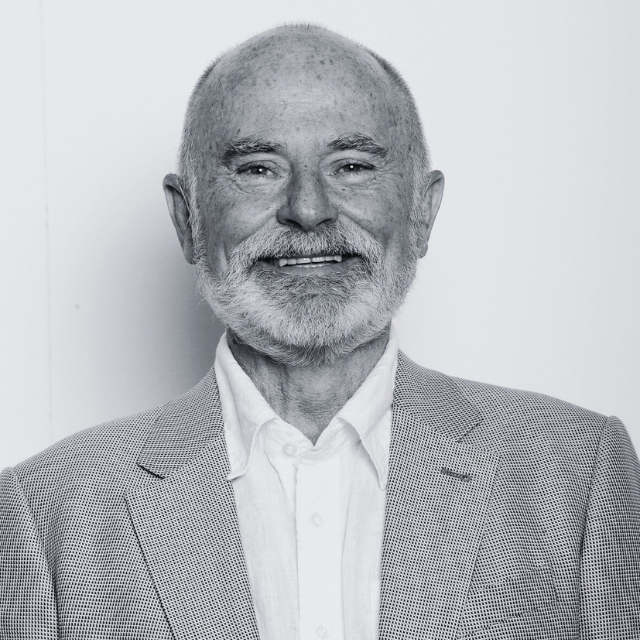
Michael Mcmartin OAM
Support Act is saddened to learn that Michael McMartin OAM passed away on Sunday 31 March.
He was a Director of Support Act for 19 years, from its inception in August 1997 until he stepped down in November 2016.
Michael was a giant of the Australian music industry, and a highly regarded and much-loved manager of the multi platinum selling band Hoodoo Gurus, and producers Charles Fisher and Wayne Connolly.
The winner of the AAM Legacy Award in 2023, and the APRA Ted Albert Award in 2007, he will be greatly missed by so many in the industry, and we send our thoughts and best wishes to his family and many friends at this difficult time.
Ron S. Peno
We are deeply saddened to hear of the passing of Australian music legend Ron S. Peno.
Best known for being the lead of alternative rock band Died Pretty, Ron brought charisma and charm to the stage that captivated audiences for over 40 years.
Died Pretty rocked the growing alternative scene in the early 80s with mesmerising live shows. Their landmark album, 1991’s Doughboy Hollow, containing the singles Godbless, D.C. and Sweetheart, achieved critical and chart success and is still frequently found in lists of the all-time top Australian albums.
Our thoughts are with his family and friends at this time.
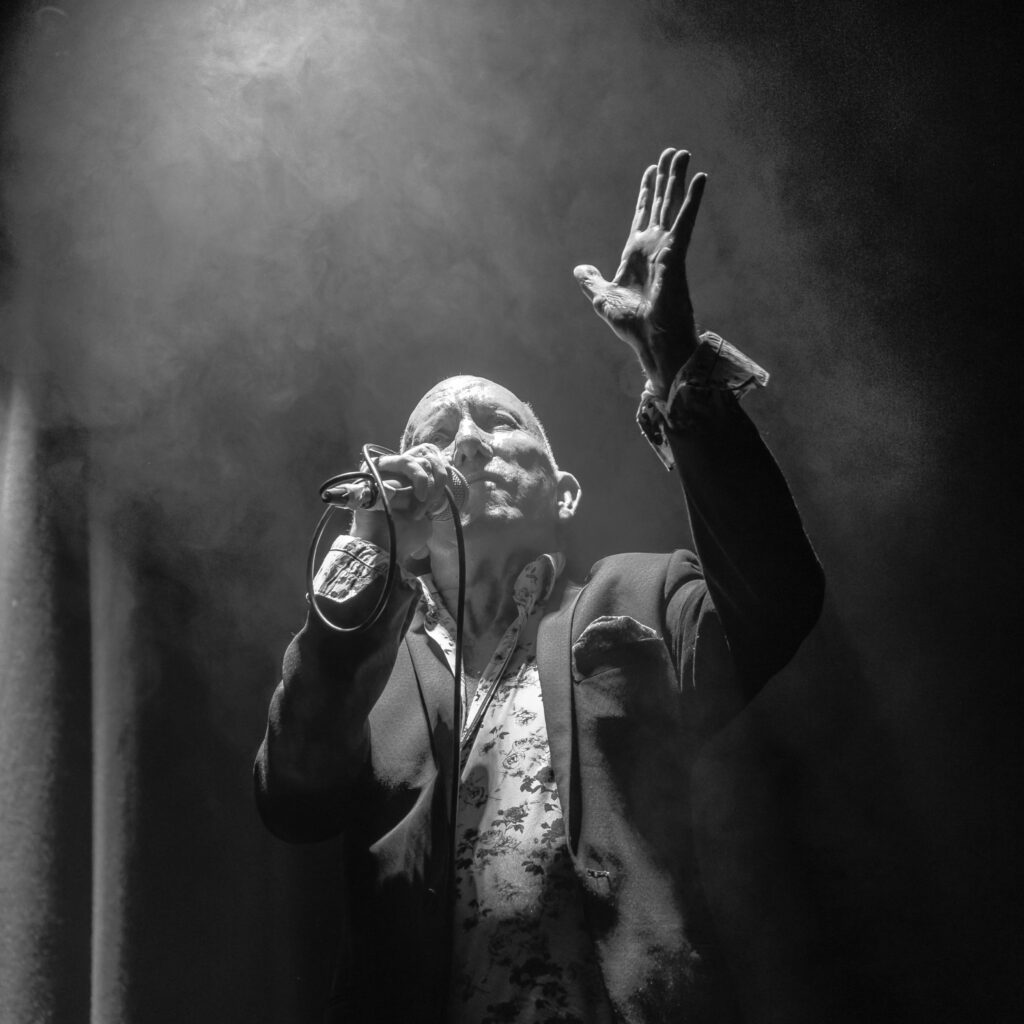
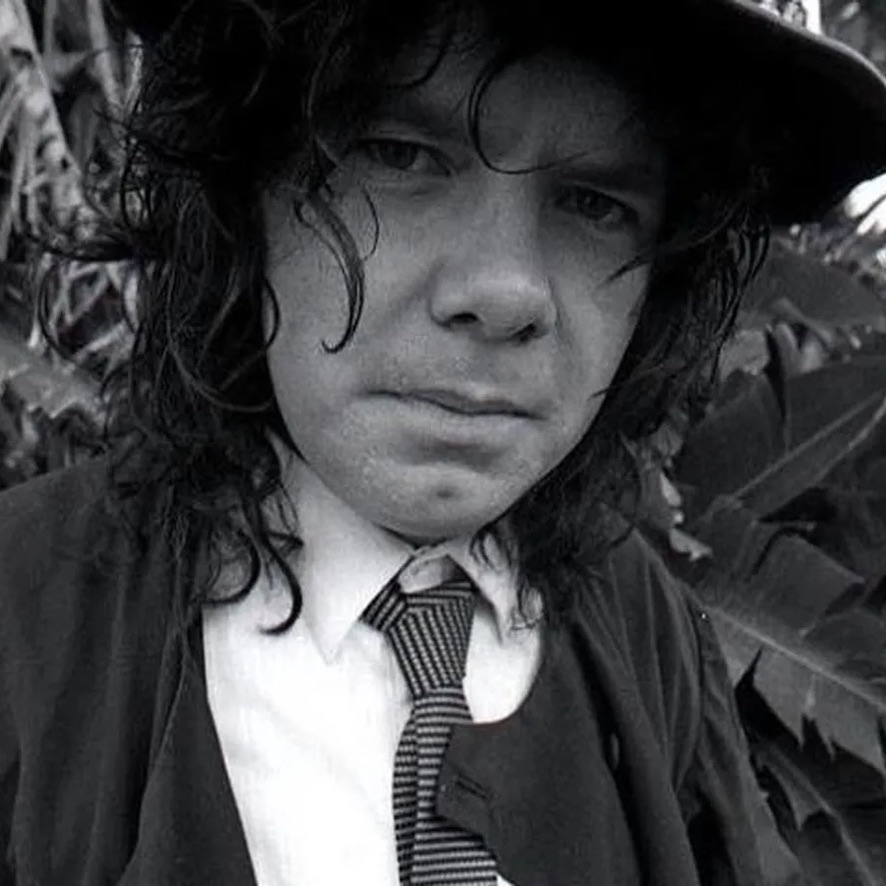
Louis Tillet
We are saddened by the news of the passing of Australian rock singer and multi-instrumentalist Louis Tillet.
He released seven solo albums throughout his rich music career, and was known for his lead in the bands Wet Taxis, Paris Green and the Aspersion Caste.
Louis was nominated by the National Film and Sound Archive of Australia as a “Priority Heritage Artist” and played over 3000 gigs nationally and internationally.
Our thoughts are with his family and friends at this time.
Yunupingu
WARNING: Aboriginal and Torres Strait Islander readers are advised this story contains images of a person who has died.
We extend our condolences to the family and friends of senior Yolngu lore man, Gumatj clan leader and the keeper of songlines, Yunupingu. He was an outstanding and influential leader, who will be remembered for his pioneering work in support of Aboriginal Land Rights, his wise counsel to a succession of Prime Ministers, and for his strong commitment to traditional culture.
He established the Yothu Yindi Foundation in 1993 with elders from regional clan groups in NE Arnhem Land, and created the Garma Festival of Traditional Culture in July, 1999. He leaves an amazing legacy across so many areas and will be greatly missed.
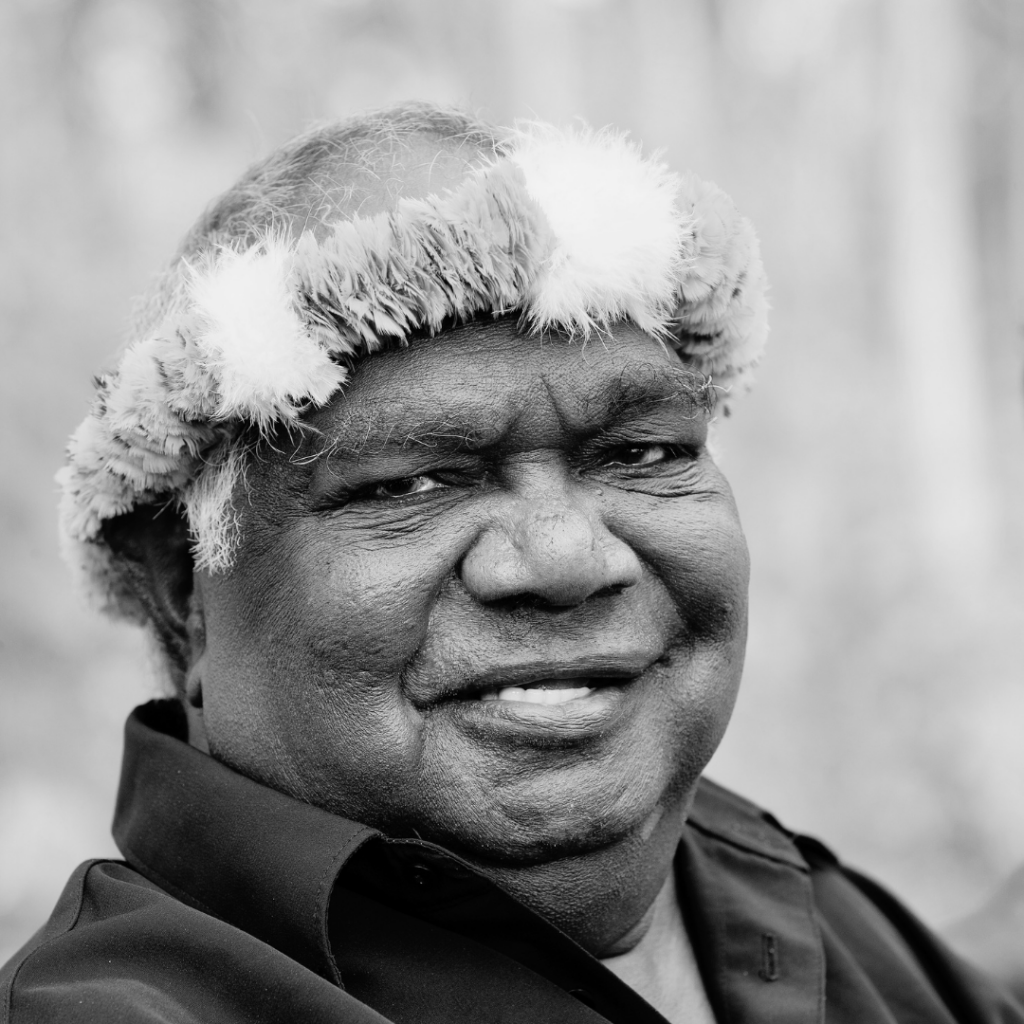
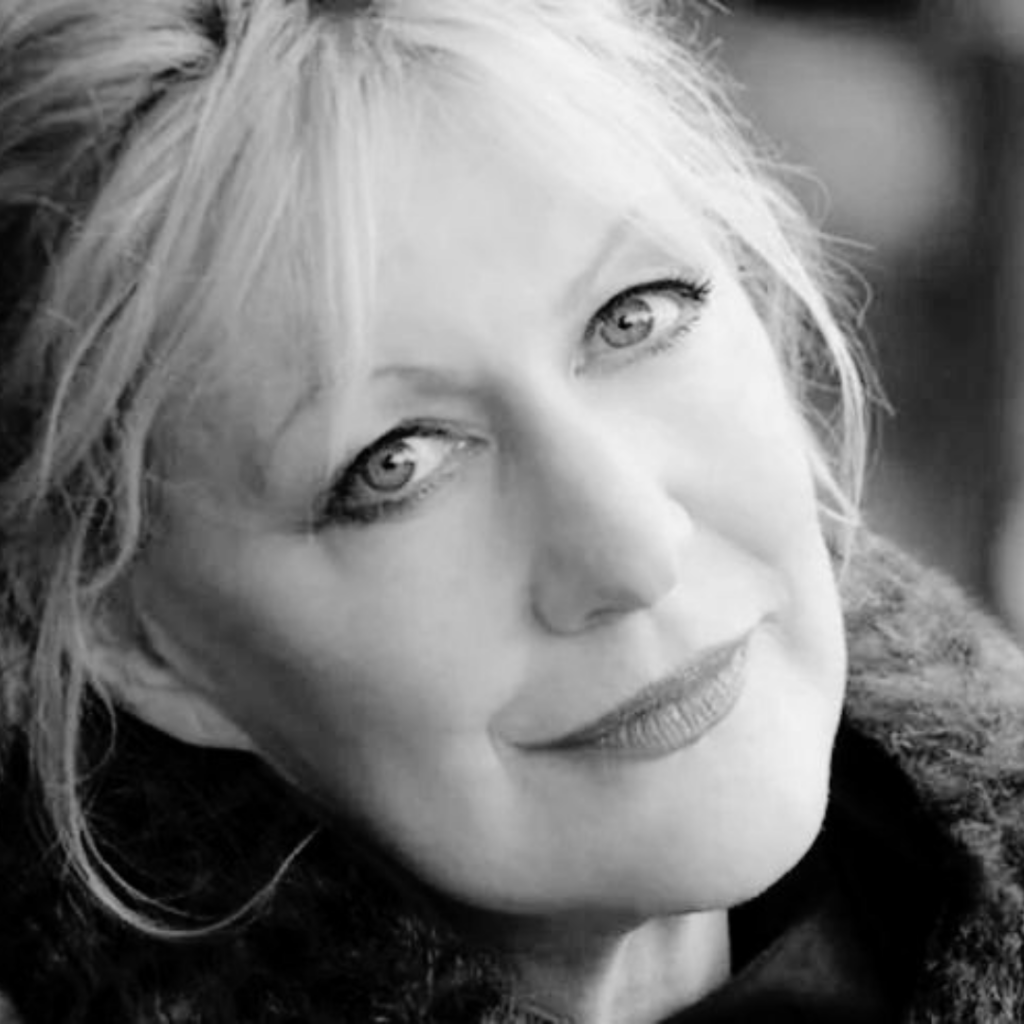
Renée Geyer
We are deeply saddened to hear of the passing of Renée Geyer, one of the most highly regarded singers in contemporary music. Her unique vocal sound influences countless singers to this day.
She was inducted into the ARIA Hall of Fame in 2005; in 2013 she was the first woman to be inducted into the Music Victoria Hall of Fame; and she received the inaugural Lifetime Achievement Award at the Australian Women in Music Awards in 2018.
Our thoughts are with her family and friends at this time.
In lieu of flowers, Renée would have preferred donations be made to Support Act as a way of giving back to an industry that loved her so much.
Olivia Newton-John
What a sad year it’s been for the music industry with the loss of another Aussie music icon, Dame Olivia Newton-John at 73, following a long battle with cancer.
Her 50-year career influenced generations, from her role as Sandy in Grease to her multiple Grammy award-winning musical career with hits like “I Honestly Love You” and “Physical”.
Our thoughts are with her family and friends at this time.

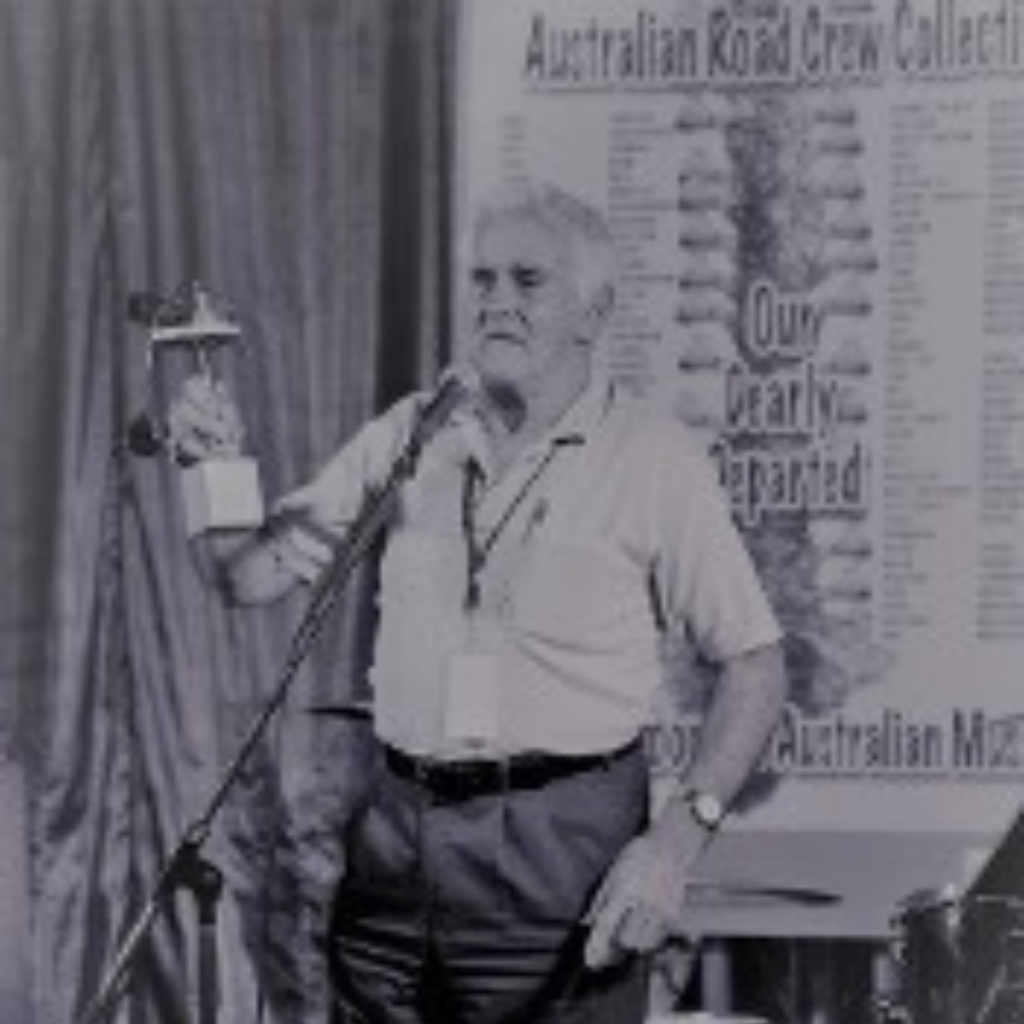
Peter Wilson
Peter George Wilson was regarded by the Australian live production sector as its best electrician.
For over 55 years, Peter, who was also a lighting designer, was the go-to-guy by big players as Dainty Corporation, Artist Concert Tours and Jands. He was doing lights for half a dozen nightclubs, carting his assortment of mirror balls, colour wheels and lighting effects he devised.
Peter was a hard worker, juggling full-time work as a maintenance electrician at Cabrini hospital and at the Palais.
Like most in crew circles, Peter was known for always lending a hand and saying yes to charity work.
His death from kidney failure took friends by surprise.
He never drank or smoked. He kept fit with 20 mile walks. He never married but was close to his family. He loved attending steam rallies and journeying on trains through North America and Europe.
Our condolences to his family and friends.
Judith Durham
We are deeply saddened to hear of the loss of Australian music icon and former lead singer of The Seekers, Judith Durham, at the age of 79.
Judith achieved worldwide success with The Seekers during the 1960’s, earning them a joint Australian of the Year award in 1967. She later left the group to launch a solo career.
Her achievements and influence as an Australian artist were acknowledged by her induction into the Australian Women in Music Awards Honour Roll in 2019.
Our thoughts are with her family and friends at this time.
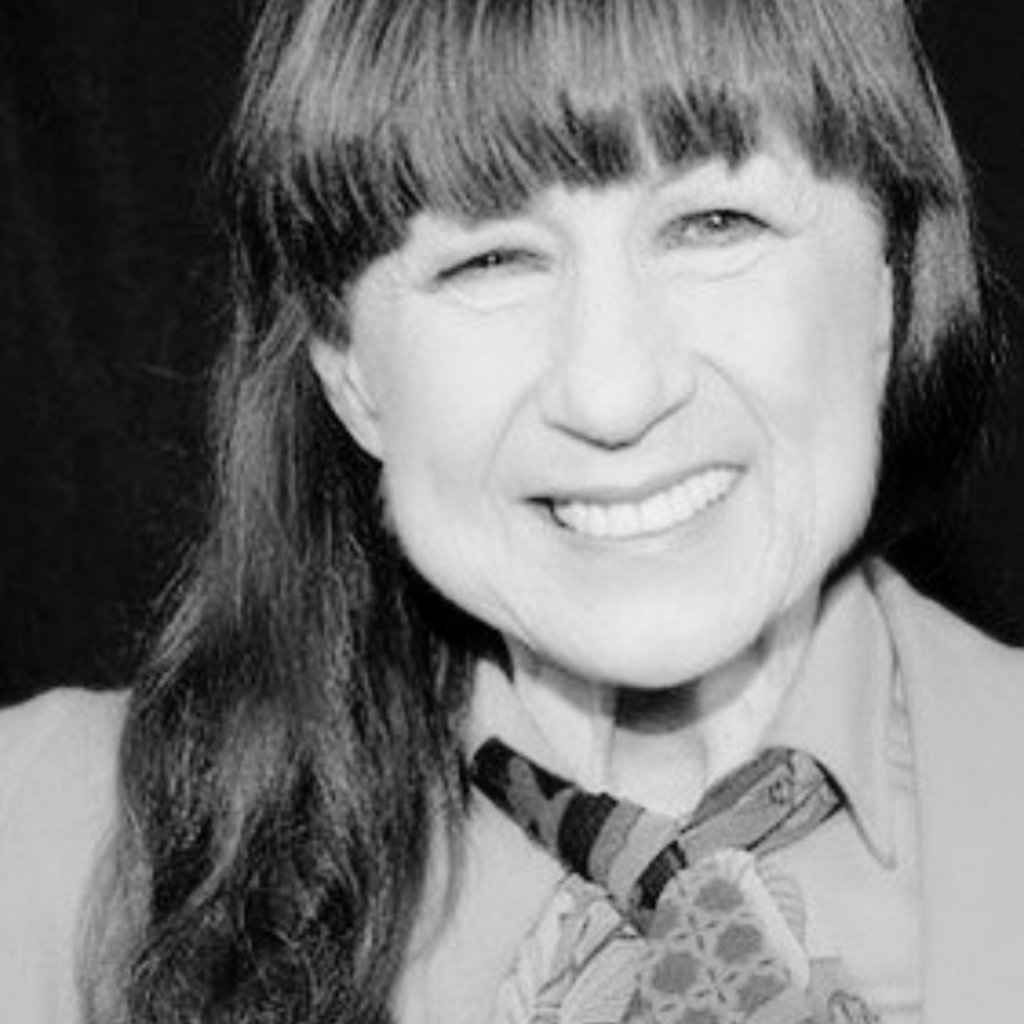
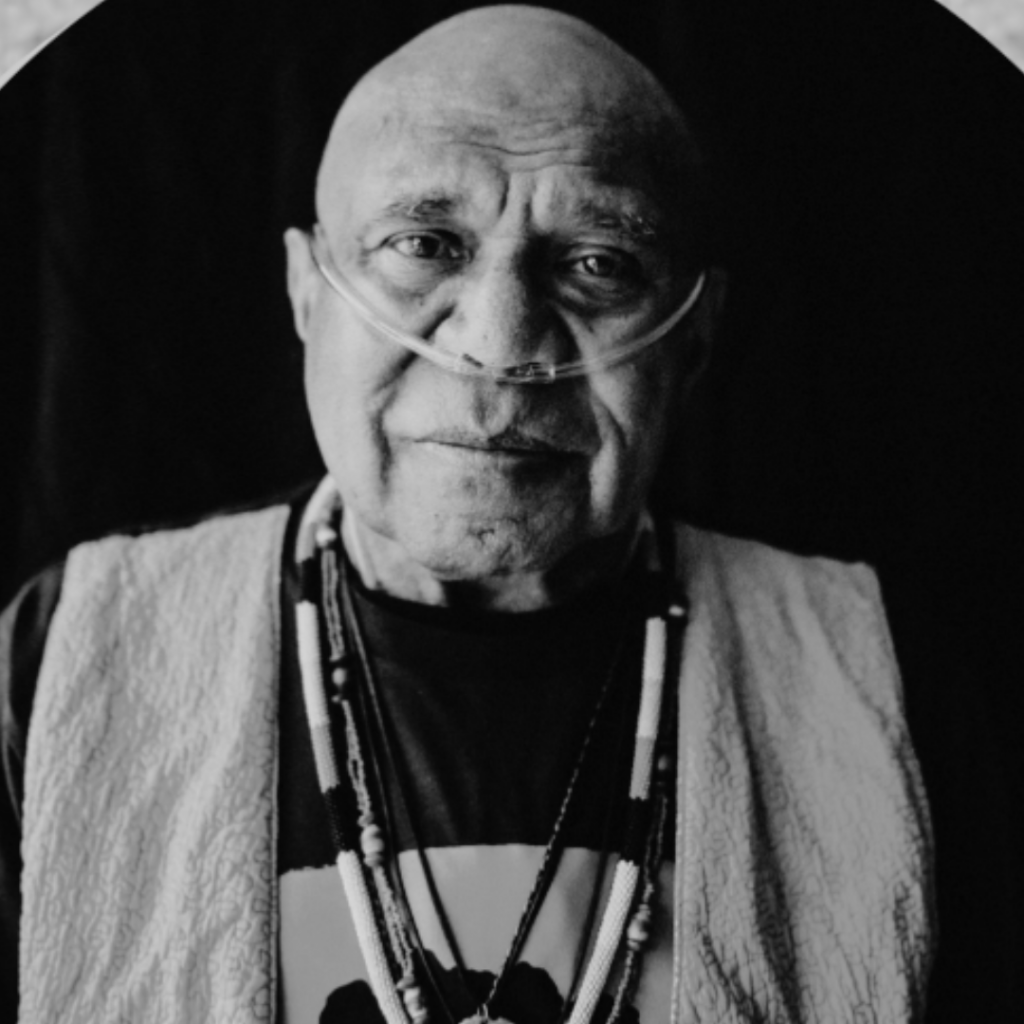
Archie Roach
WARNING: Aboriginal and Torres Strait Islander readers are advised this story contains images of a person who has died.
Hearing the sad news this weekend, we would like to acknowledge and pay our respects to the family and the First Nations community as we all mourn the loss of legendary Gunditjmara (Kirrae Whurrong/Djab Wurrung), Bundjalung songwriter and story teller, the iconic Uncle Archie Roach.
He has been and will forever be an inspiration to the First Nations music community. Rest In Peace, Uncle – 8 Jan 1956 to 30 July 2022.
Paul Marks
We are deeply saddened to hear of the loss of legendary folk, jazz and blues performer, Paul Marks, who died after an illness on Anzac Eve.
Paul was credited with influencing a new wave of folk artists in Australia such as Judith Durham and Keith Potger of The Seekers, Margaret Roadknight and Dutch Tilders.
Born in the UK, Paul was 23 when he arrived in Australia.
He made an immediate impact on the locals, giving them the first live taste of the blues, skiffle and New Orleans spirituals he picked up at gigs while serving in Britain’s Royal Air Force.
Paul Marks LIVE at the Christchurch Folk Club 1968 demonstrates the passion with which he performed, the lengthy explanations behind the lyrics and how he came across the songs, and the easy rapport with the audience which often led to sing-alongs.
Work was plentiful, with Paul playing a couple of shows each evening, as well as with the Melbourne New Orleans Jazz Band and his skiffle group The Paul Marks Folk Singing Group.
On the weekends he headed off to Sydney to do a relentless round of clubs and appear regularly on the Sunday night ABC-TV show Dave’s Place.
The workload affected his health badly, and he moved to New Zealand for a quieter life. He still played clubs and festivals, and was featured in a TV documentary on how he would busk in the streets of Christchurch for a few hours each day despite his advanced age.
Our thoughts are with his family and friends.
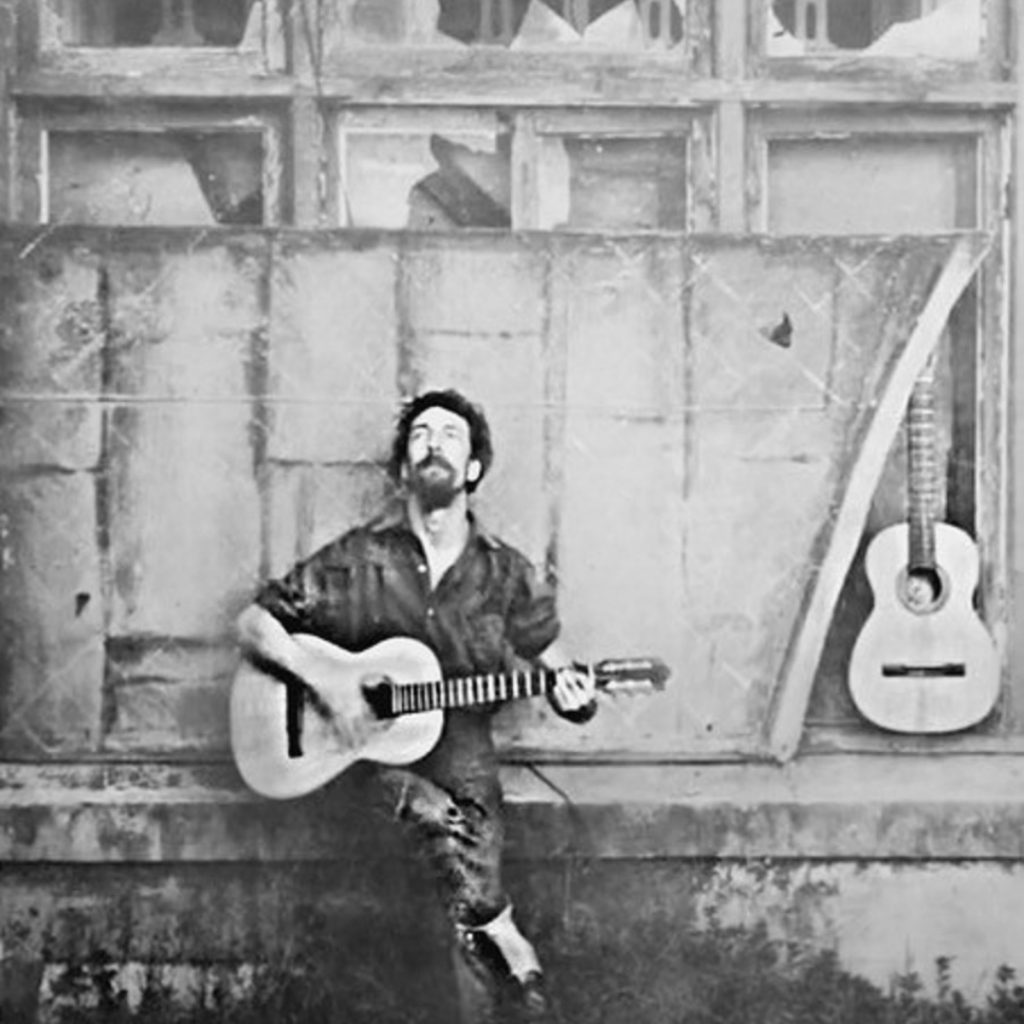
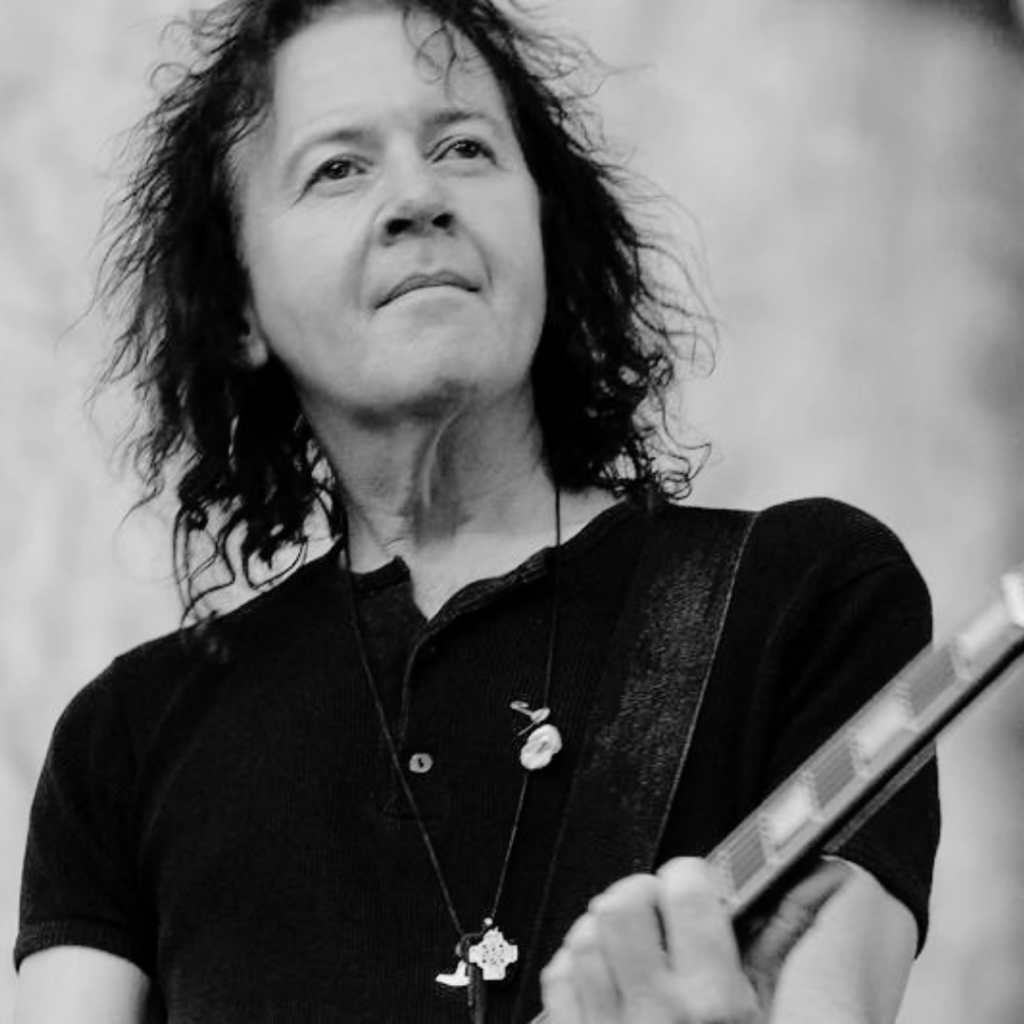
Chris Bailey
Vale, Chris Bailey. Another music legend has been lost.
“(I’m) Stranded” was one of the most influential singles of the punk era and Chris was a charismatic performer, gifted poet and prolific recording artist.
Our condolences to his family, friends and many fans.
Ken West
We are so sad to learn of the passing of visionary promoter, Ken West.
Ken was always ahead of the curve when it came to the promotion of independent music, from his early days in the ’80s putting on brilliant shows at such iconic venues as the Paris Theatre in Sydney (with the Birthday Party, Laughing Clowns and the GoBetweens), Trade Union Club and many more. Then the launch in the ’90s of that amazing juggernaut, Big Day Out.
Ken, along with his business partner Viv Lees, produced the record-breaking Big Day Out festival that toured Australia and New Zealand from 1992 through to 2014. In its heyday the festival featured world-renowned international acts such as Nirvana, Rage Against the Machine, Nick Cave and the Bad Seeds, The Chemical Brothers, Rammstein, Red Hot Chili Peppers, Patti Smith and PJ Harvey along with a myriad of Australian acts such as Powderfinger, Hilltop Hoods and Spiderbait who became household names through their main stage appearances at the event.
In January 2022, Ken released an excerpt from his upcoming book to mark the 30th Anniversary of the inaugural Big Day Out that took place in Sydney in 1992.
Ken is survived by his wife Cathy, son Oliver and his many comrades, collaborators and friends he made along the way.
He was an inspiration for so many people in our industry and will be greatly missed. Vale, legend.
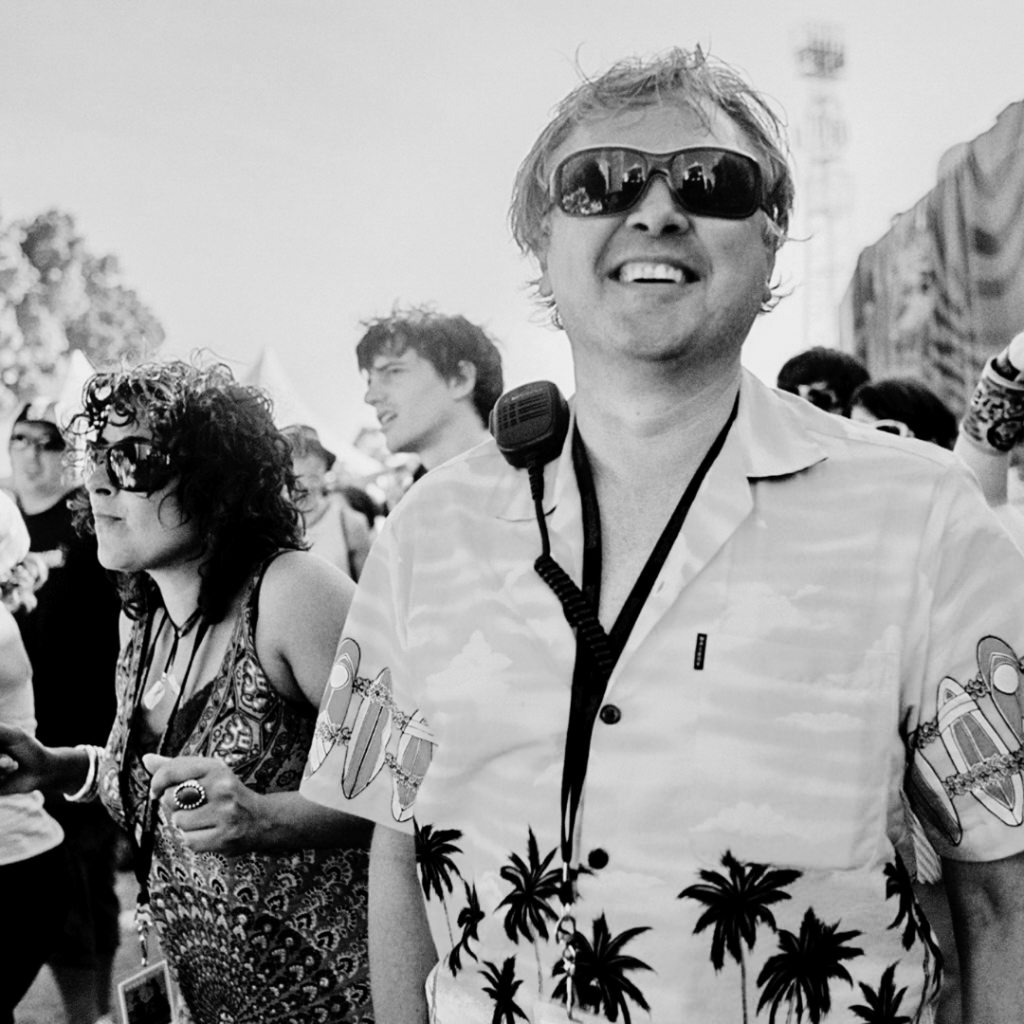
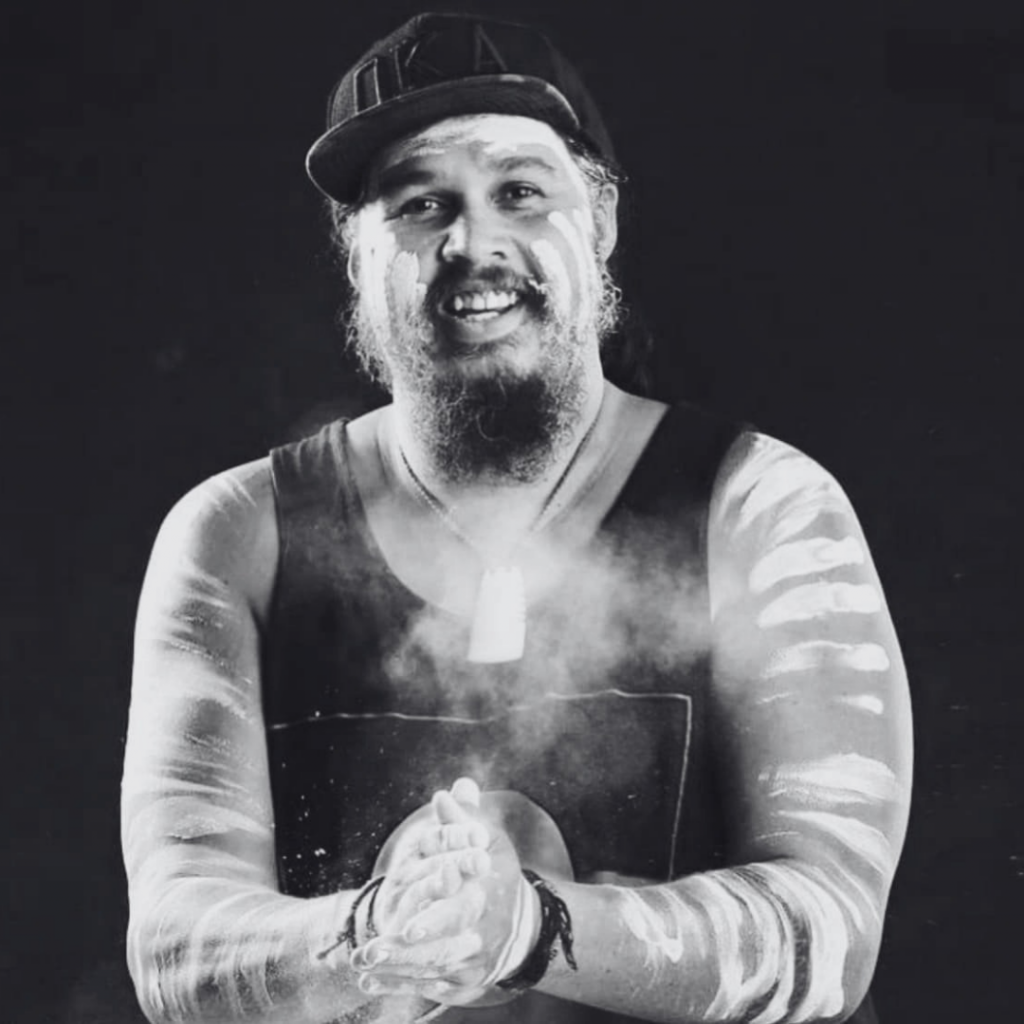
Stuart Fergie
WARNING: Aboriginal and Torres Strait Islander readers are advised this story contains images and voices of a person who has died. The family has given permission to use the man’s name and images.
We are saddened to hear of the death of Stuart ‘DidgeriStu’ Fergie after losing his battle to complications from COVID.
Stu was the heart and soul behind Sunshine Coast roots band OKA. Stu wove his Indigenous roots into music and performances with Yikdaki and electronic beats, drawing on connection to country. Mixed with live instruments such as drums, percussion, sax, flute, keys and synth, OKA’s music was unique and captivating – a favourite in filling dancefloors in venues and festivals both across the country and overseas.
Stu firmly believed in “Standing strong in my culture” and “Keeping customs alive” and proudly shared his Indigenous culture during live shows through his music, Yidaki playing and by teaching audiences small traditions and words throughout his show. His catch phrase “Respect. Every time” was heard at just about every OKA concert. The band’s name OKA comes from his culture and the earth – deriving from the symbolic use of ochre by Indigenous peoples in dance and ceremony – not just in Australia, but in many first nations people across the world.
Not only a talented musician, but also talented artist and in graphics and film editing. Stu’s distinct artistic style of native Australian flora and fauna has graced many OKA album covers, posters, stickers and even arms as tattoos.
Our condolences go out to Stu’s family, including his daughter Marley, his many band mates over the 20+ years of the OKA collective, and his friends and musical community.
Neill Duncan
We were deeply saddened to learn of the passing of Neill Duncan on 28 December 2021, following his diagnosis with a virulent lymphoma last June.
Neill Duncan was one of Australia and New Zealand’s leading saxophonists, composers, multi-instrumentalists and improvisational jazz players, who was best known in Australia for his work with The Jews Brothers, Darth Vegas and The Three Handed Beat Bandits. In New Zealand he was a founding member of the Braille Collective, Primitive Art Group, Blue Bottom Stompers and The Spines.
In 2012, Neill’s left arm had to be amputated to fend off an aggressive sarcoma. With help from Support Act, he was able to have a saxophone especially designed, whereupon he became the world’s leading one-handed tenor saxophone player. You can learn more about Neill’s journey here.
At the time of his death, Neill was planning to record Phantom Tones, a record of compositions for his one-handed saxophone. He has bequeathed the one-handed tenor and one-handed soprano made for him by Maarten Visser of FluteLab in Amsterdam to the One-Handed Musical Instrument Trust in Birmingham and his musical whanau will ensure his compositions are recorded and played.
Neill’s wife Naomi Parry Duncan said: “Neill was very passionate about the fact that music was a language that everyone can understand but not everyone can speak, and that instruments like his were essential for people with disability to release the music within them.”
Our condolences to Neill’s family, five children and many friends and fans. RIP.
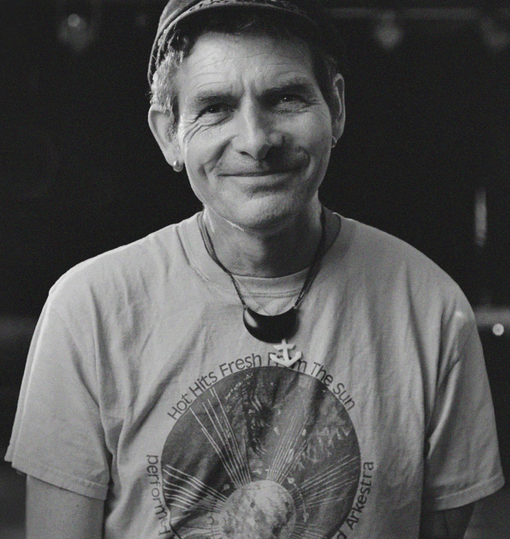
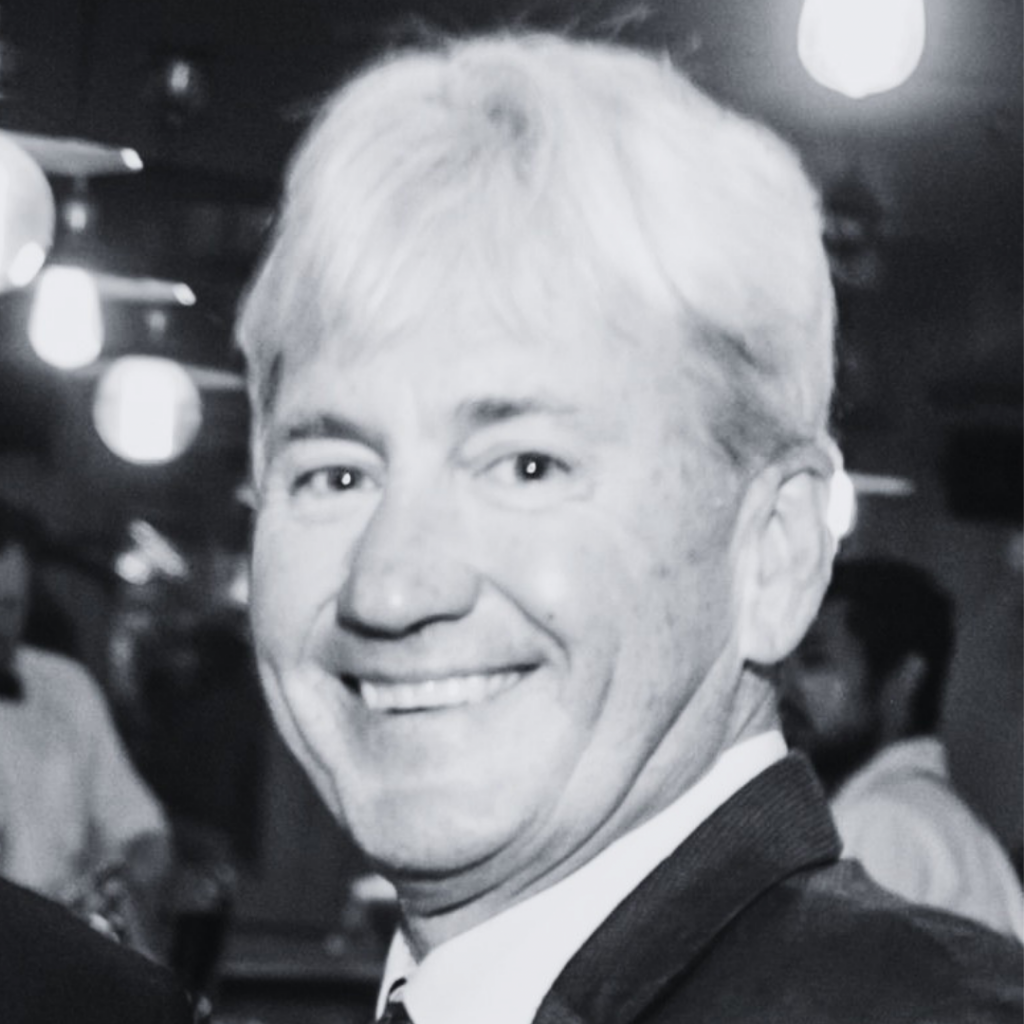
Jeff Bolt
It is with great sadness that we learn of the sudden passing of Jeff Bolt on Sunday 10 October 2021. Jeff was a legend of the professional entertainment industry. He devoted four decades of his life to the profession, mentoring others and creating lifelong friendships.
Jeff started his audio career lugging boxes in and out of pub gigs, before landing a sales job at a prominent audio and lighting distribution company in 1988, where he worked his way up and spent the next 29 years.
Since 2018 Jeff had been successfully leading the Bose Professional ANZ Team, with the usual enthusiasm and gusto that anyone who knew him would expect.
Jeff was a proud cricket and rugby fanatic. He gave much of his spare time to the local cricket community, as the Secretary and an honourable life member of the Lindfield District Cricket Club.
Jeff is remembered with love by his wife Janet, and his three children Annalise, Jono, and Henry. He will be sadly missed by an industry that he left an incredible imprint on.
Danny Spooner
Danny Spooner was born to sing. The child’s family settled in to sing around the wireless, they sang around the piano at family knees-ups, they sang in the East End Dockland WW2 bomb shelter, and when the 13-y-o found work on a steam barge it was with a singing skipper who joined him up to three libraries and insisted that he read history and ‘tell him the tale’ (Bob always had a song to illustrate the story).
Danny loved his work on the Thames and along the south coast, learning about the docks, the stretches and bridges of the Thames as he earned his ticket as a Waterman and Lighterman, and venturing further offshore as a tugman and as a trawler skipper. But ‘work on the water’ was evaporating as goods moved through the air instead, so Danny worked his passage on the passenger ship Canberra to test opportunities in Australia.
In Sydney then Melbourne he found a thriving music scene, jazz, 60s rock’n’roll and folk clubs (where people were paid to sing the very songs that had emigrated with him). Frank Traynors late night jazz club found that folk fans could fill the earlier part of the evening, dressed in duffle coats and desert boots and drinking coffee in candlelit rooms. Danny was inspired to recall his traditional British Isles songs of work and war, love and other pastimes. He read voraciously the social history of working people, and caught the ear of Weston Bate at the University of Melbourne, who got him on staff in History there in the 1970s. There he met Gael Shannon and their partnership lasted the rest of his life. The quiet life with her in Carlton balanced his boisterous public life, they moved together to Geelong and he worked at the brand new Deakin University and the Geelong College. Danny enjoyed earning his off-campus BA from Deakin and his DipEd from the University of Melbourne making a livelihood secondary teaching at Mowbray College. He took part in the Geelong Folk Club’s creation of the Port Fairy Folk Festival, and, jumped into Geelong’s busy theatre culture, appeared in Worzel Gummidge, Great Expectations, Fiddler on the Roof and My Fair Lady (the vigorous dance routines necessitated giving up smoking!). As folk clubs disappeared, he popped up on festival programs from Darwin to Georgetown. He sang solo, accompanying himself on concertina, guitar or the spoons. Nothing suited him better than finding the right songs to sing to a particular audience, his chat giving the story its social context that allowed the ancestors to speak directly. Danny believed that the song chose him to tell the story of a person (soldier, a miner or his wife, a farm labourer or a shearer).
A great fan of vinyl (9 recordings), he reluctantly began to record CDs (14) and found it painless. His final collection of Australian songs Now I’m home is due for release by mid-year.
In retirement he had more time to sing, finding the audiences of North America honoured him as a traditional singer, learned some of his British or Australian material and shared wonderful American songs with him. He was honoured to be invited by Richard Tognetti to join the Australian Chamber Orchestra on a national tour and a festival in Maribor, Slovenia. Recently his colleagues in the big extended folk music family combined for a 5-hour tribute concert in the Daylesford Town Hall.
The urban boy had found his true home in Daylesford in a vintage house under walnut trees, where he read books, prepared workshops on many themes, cooked and mowed ½ acre by hand. It was the perfect sanctuary. He was much loved by three generations of Gael’s family, reading to the children in dialects Wind in the Willows and Tolkien, and with his peers inspiring dinner table discussions about life the universe and everything.
Danny Spooner was an amazing man with infectious energy and personal warmth, great musicality and encyclopoedic knowledge His legacy will live long. A leading light in the folk revival from the 60s, Danny will be a massive loss to the folk movement in Australia where he was both a bedrock and benchmark. He was buried quietly in a bush cemetery near Daylesford, and is survived by his wife Gael, his English brother Terry and sister-in-law Marion, his Australian sisters-in-law Janet Shannon and Catriona Ebeling and their generations of children by whom he was much loved.
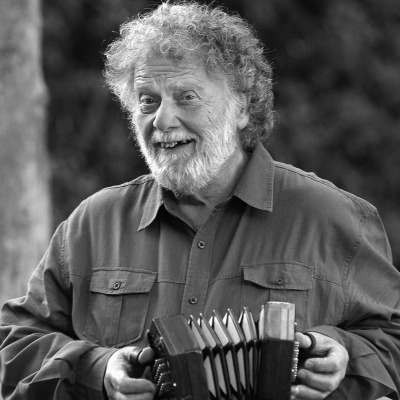
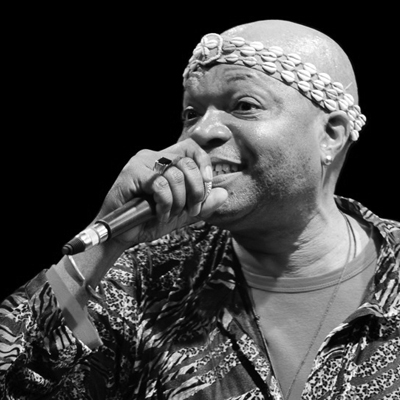
Passi Jo
04/01/1949 – 06/11/2016
Passi Jo was an award-winning professional musician and gifted pioneer of the African music scene in Melbourne.
He was an extremely talented song-man and performer who, along with fellow Congolese musician Tchico Tchicaya, established the well-known and acclaimed band Warako Musica in 1998 in Melbourne, Australia after migrating from the Congo via Paris. Passi Jo was known internationally with his bands Super Baboto and Kass Kass, having performed with some of the world’s greatest musicians. He was an extraordinary ambassador and troubadour of Congolese Rumba/Soukous music who creatively incubated and inspired new African music and dance in Australia.
He was born in Kinshasa, Democratic Republic of Congo and as a consequence of an international Australian tour in 1990 from his second homeland in France, he was fortunately influenced to return to settle in Australia in 1993. Over the 20+ years he was in Australia he performed nationally and enriched the multicultural arts scene in Melbourne and beyond.
He released many albums over his artistic career giving African culture a special prominence in the music scene, especially in his home of Melbourne. He helped forge a pathway and open doors for many other African and world musicians in the Australian music industry.
On stage his performances were very well-known for the high energy his band created. They featured an extensive band line up of African and Australian musicians combining rumba and soukous rhythms with vibrant choreographed dancers; this offered an extraordinary showcase of Australian/African culture at its best. Music was in his blood and music and culture was his life.
Unfortunately in recent years, Passi Jo contracted cancer. He faced his illness with courage and a determination that left us in awe. He was determined to be independent and kept his illness largely in check right up until the end with mental discipline that was admirable. His thoughts were always for his family, friends and music!
I saw Jo’s whole body, and especially his eyes, light up at the benefit gig held for him in November 2015 in Northcote. He was on stage doing what he loved best – performing African music. This represented his enormous talent, passion and creativity as well as his patience, perseverance and endurance. On that same night it was announced that he was the recipient of a Lifetime Achievement in Musical Career Award from Victorian African Community Awards/Africa Media Australia.
In late 2015, he travelled back to his other two “homes” – Congo-Brazzaville and Paris. I saw him in Sydney Road, Brunswick just after he was back. He was in a local café having a short black, so we sat and chatted for a long time. He was so happy and full of the stories of what the trip had meant to him. It was a very special and meaningful time he shared with his wife Pam, his family and friends.
We were very privileged that Passi Jo made Melbourne his home and his spirit is still here. He will be greatly missed and his legacy will live on through his music. Here’s to Passi Jo: the pioneer, the individual, the round peg in the square hole, the one who thankfully saw things differently and uniquely – the one who changed the music scene in Melbourne forever and inspired so many others.
Vale to a very fine musician, singer, composer and dancer. He is irreplaceable and will not be forgotten.
Jill Morgan
CEO
Multicultural Arts Victoria
Carol Lloyd
17/10/1948 – 13/02/2017
Trained as a Writer/Producer in radio (4KQ), Carol worked in London in 1969, where she headed up the Sales Contracting & Copyright Control department (Western Hemisphere) at global TV series distributor, ITC – Incorporated Television Company, issuing contracts for the sale of cult series like ‘Thunderbirds’, ‘The Saint’ and ‘Dangerman’ to TV networks across the globe.
Returning to Queensland to work in advertising, she began exploring her potential as a singer/songwriter, becoming Australia’s first ‘Rock Chick’. Dubbed Australia’s ‘Wild Woman of Rock’, Carol generated shock and respect as the first female singer/songwriter in the country to crash the ultimate boy’s club and front a successful recording and touring rock band in 1970 – some seven years ahead of those who followed e.g. Chrissie Amphlett of the Divinyls, and the American rock icon she totally upstaged at Brisbane’s Festival Hall in 1974- Suzy Quatro.
Leather, glam-rock or Jungle-green clad, Lloyd created her own rebellious look and raw gutsy style as she toured for 7 years with Railroad Gin (on the prestigious Polydor label for Phonogram) and the Carol Lloyd Band (EMI World-wide), racking up several No. 1 hits, and winning the first world-wide EMI International publishing contract issued to any artist in Australia.
Her first three singles –“ A Matter of Time”, double-sided hit, “ Do ya Love Me/Academy Rock” and ‘You Told the World” charted No. 1.
Carol’s songs were published in 27 countries, with her first album, “A Matter of Time” with Railroad Gin racing up to No. 1 in 3 weeks, and her second, “Mother was Asleep” charting No.1 or top 3 in Germany, France, Japan, Holland, and Indonesia.
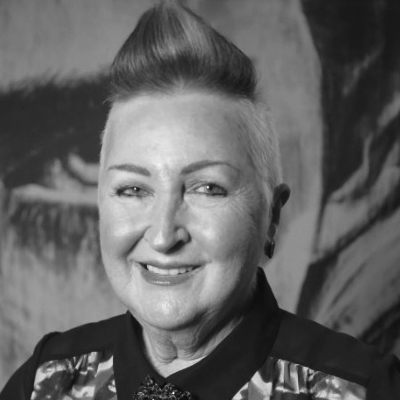
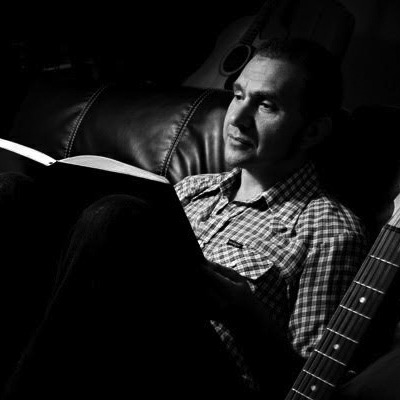
Karl Broadie
1971-2016
It was a fortunate wind that carried this Scottish troubadour to Australia’s sunny climes in the late 1990′s, but the Great South Land became that little bit greater from the moment he landed. A boy with a dream, born in Edinburgh on November 27th 1971, the son of renowned Scottish artist Barry Broadie, and the grandson of published poet, novelist and philosopher Frederick Broadie, whose Jewish family fled Russia for Manchester after the Bolshevik revolution of 1917. Karl grew up in Edinburgh and London, tapped the poet’s blood that ran so richly in his veins and channelled it into a career in music. He cut his teeth in London as a young assistant engineer, on sessions for The Fine Young Cannibals et al, but always pursued his songwriting craft and built his performing skills.
Initially he utilised his Jewish ceremonial name to perform and record under, recording a self-funded and pop influenced album under that non de plume, Gershon in the late Nineties. Karl’s Jewish name roughly translates as ‘travelling musician’, and so it was he landed in the Antipodes in 1998 where his personal life soon cemented his links to this country when he and his partner Marni Jenkin celebrated the birth of their eldest son Oskar Jenkin-Broadie in 1999. Karl moved away from pop (and from Gershon) after succumbing to a Steve Earle/Townes Van Zandt led epiphany in 2001, and recorded his first alt-country record, Nowhere Now Here, in 2002 under his own name. The album was released by industry stalwart and tastemaker Stuart Coupe on Laughing Outlaw Records and garnered enormous critical acclaim, entering the AmericanaUK chart at #1. Karl continued to create gorgeous music on a shoestring and released the wonderful follow up EP Everybody’s Gold on Stuart’s label in 2003. Karl and Marni’s follow up, Travis Jenkin-Broadie arrived a tad earlier in 2002 and the two sons in his life became his defining pride and joy.
Karl consolidated the success of his first album with the earthy tones of Black Crow Callin’, released on Universal Music Australia in 2005. The title track won Karl the Americana section of the International Songwriting Competition and the reputable reviewers at AmericanaUK duly put it in at #1 on their chart. Karl took immense pride in taking a band to the UK to tour that album, playing a series of fine shows in London, Brighton, Southhampton and Lewes before heading north to Newcastle and then over the border to his native Scotland, culminating in a show above Loch Ness for the Tartan Heart festival. Karl’s reputation continued to grow and garnered him a contract with ABC Music and his first album for them, One Million Emeralds, produced the pop tones of the single Sleepy Head and the country lilt of Count Your Blessings, a song that was nominated for a Golden Guitar at Tamworth. Karl followed that effort with an Out-takes EP called One Constellation and also earned praise from Paul Kelly for his brilliant cover of Kelly’s How To Make Gravy on the Woodsmoke iTunes only EP in 2006. and via his contract to Mushroom Publishing spent many sessions co-writing with talented people like Kim Richey, Eric Paslay and Craig Ross in Nashville. Karl’s second album for ABC was the introspective Branches in 2009, a powerful album that spoke sadly yet eloquently of the break up and loss of a relationship. He became an independent artist after Branches, pushing his songwriting into different areas, whilst always pursuing his poetic muse. Karl toured incessantly, playing countless gigs in every part of the country and continued his co-writing sojourns to the US. He released the eclectic A-Side,B-Side Seaside album under his own steam in 2013, a testament to the enduring and endearing nature of his music and his songwriting. Karl also worked widely with younger songwriters as his natural empathy and selflessness led him into supporting new performers and producing and promoting promising new talent. He took a position as a tutor at the CMAA in 2015 and 2016, which chimed in perfectly with his easy way with people and his ability to gently nurture and encourage young artists to develop their talents and help them pursue their dreams. Karl instigated a regular Tuesday night session for songwriters at the Coogee Bunker room in 2014, which has become an institution and a beacon for original songs in Sydney, and in his honour the club has now named the stage in that room the Karl Broadie Stage.
2016 was shaping as being as busy as usual for Karl before a sudden illness revealed a terminal and inoperable cancer. This awful news galvanised the musical community, immediately stepping up to help raise much needed funds for his treatment. Two concerts saw the cream of alt-country talent step forward to support Karl and show solidarity with him, including Kasey Chambers, Catherine Britt, Brooke McClymont, Adam Harvey, Kevin Bennett, Harry Hookey, Luke O’Shea and many others too numerous to mention. The immediate response spoke volumes of the regard in which Karl was held, but the disease cruelly took Karl from his family and friends within 6 short weeks from diagnosis to death. The shockwaves in the musical community at the sudden loss of a beautiful soul and a truly gentle man have been profound and far reaching, condolences and sympathy pouring in from far and wide, but the silencing of his individual artistic voice is a tragic loss and incomprehensible to those who knew and loved him. His mother Margaret and his partner Rachel were a huge comfort to him during the difficult last weeks, and they deserve special praise, as does Marni and his two fine sons, Oskar and Travis, and given the strength of the blood of the poets that flows in their veins it’s doubtful we’ve heard the last of Karl’s poetic influences there. The dignity, style and courage Karl exhibited in his final days won’t surprise those who knew him, his gentle passing underscoring a life well lived with a final and distinguished grace note.
Karl’s legacy is etched firmly in the song fabric of this country. His effortless facility with poetry ran through his work like a river, best encapsulated in lines like this from his first EP, “Everybody’s gold, and you warm them up to shape them”. Karl spent his life subliminally warming people up and shaping them with his kindness and openness, a gentle oasis of real in a roiling sea of fake. That’s why people responded to Karl and that’s why his passing has touched so many. His authenticity and his magic is found in his music, replete with elegant imagery, spare turns of phrase, melodies that won’t leave your head and a subtle, philosophical underscore to resonate after the last chord has sounded. Karl has strummed his last chord, and the echoes stay with us, rippling sweetly out into the universe as he chases the stars for fresh stories and new tunes. Maybe if we listen closely we will hear them coming through and smile – he would have liked that.
Michael Roberts – Friend/Producer April 2016
PS – Karl was deeply grateful for the ongoing help of Support Act and also of Chris O’Brien’s Life House facility, who cared for him and treated him in the last days. I know he’d be happy to think people would be donating money to both institutions in his name to help keep their crucial, ongoing work funded.
Jon English
It is with great sadness that we commemorate the passing of Jon English.
Jon died peacefully on 9th March 2016, aged 66. The cause of death was post-operative complications. At the time of his passing he was surrounded by his four children, Jessamin, Josephine, Jonnie and Julian, his wife Carmen, his sister Janet, his brother Jeremy, his nephews Jay and Jasper Collie, his grandson Jzawo and other close family members.
Born in Hamstead, London on 26 March 1949, Jon came to Australia with his parents, Syd and Sheila, and three siblings, Janet, Jeremy and Jill, at the age of 12. Jon was one of the few Australian performers to combine a career in music, television and stage.
In the early 70’s Jon auditioned for Harry M Miller’s first production of Jesus Christ Superstar. He was given the prestigious and demanding lead role of Judas at the age of just 22. The show’s phenomenal success kept him busy for the next five years, touring all over Australia and New Zealand. During the time Jon was touring with Superstar, he also recorded four albums. He had hits with songs such as Handbags and Gladrags, Turn the Page (his first number one) and Hollywood Seven. At the same time he appeared in guest roles on popular television drama shows including No 96, Matlock Police, and the Homicide tele-movie, Stopover.
1977 culminated with Jon’s fifth album and third number one hit single Words Are Not Enough, and a concert tour with the band, Thin Lizzy. He then took a short break from the rock music scene in 1978 when he appeared in the lead role of the popular television mini-series, Against the Wind. Jon won a Best New Talent Logie for his performance as convict, Jonathan Garrett, in the series. Jon wrote the score for Against the Wind. He also co-wrote the theme song, Six Ribbons, which became a number one hit in more than six countries. As a result of Against the Wind, Jon became one of the rare performers to win an acting Logie and a TV Week/Countdown award (for best male vocalist) in the same year. English History, Jon’s next and seventh album was also released in 1978. This ‘best of’ album made history at the time by becoming the largest selling double album in Australia. Albums number eight, nine, and ten followed in 1980, 1981 and 1982 – Calm Before the Storm, Inroads, and Jokers and Queens (with Marcia Hines).
Jon’s first collaboration with producer David Mackay began in 1983, with his twelfth album Some People. This collaboration saw the beginnings of a partnership that would eventually give birth to the rock opera, Paris.
1984 saw Jon’s first appearance as the Pirate King alongside Marina Prior, Simon Gallaher, and June Bronhill in the Victorian State Opera’s production of The Pirates of Penzance. As Pirate King he won the Melbourne Critic’s Green Room Award for Most Outstanding Actor on two occasions during the season.
Jon took on the lead role of Bobby Rivers in 1991 in the television sitcom All Together Now, co-starring Rebecca Gibney. The show, about a faded seventies rock star who discovers parenthood late in life, lasted for three years and over a hundred episodes. Jon again wrote the theme song and was musical director for the series. All Together Now was sold in over thirty countries, including Germany where it was called Rock and Roll Daddy. Jon worked alongside Simon Gallaher again in 1994 when Simon produced an updated version of the Pirates of Penzance. With Jon again as the Pirate King, the show played to sell-out crowds around Australia and New Zealand and grossed over 13 million dollars at the box office. The ABC produced video of Pirates has now sold triple platinum, and the live album won the ARIA award for best cast album. This ARIA bought Jon’s personal tally to four. The success of Pirates of Penzance was followed up with another two Gilbert and Sullivan classics – The Mikado and HMS Pinafore. With Jon again cast in the lead roles, both shows opened to critical and public acclaim, touring extensively throughout New Zealand and Australia, until Pinafore finally closed the hugely successful ‘trilogy’ in October 1997. In early 2009 Jon also teamed up with a troupe of multi talented, multi instrumentalist young rockers to produce a spectacular 10 piece tribute to the 60’s and 70’s rock generation called The Rock Show. At the time of his passing, he was still performing regularly in a variety of music shows.
A public service celebrating Jon’s life will be held with details to be released shortly.
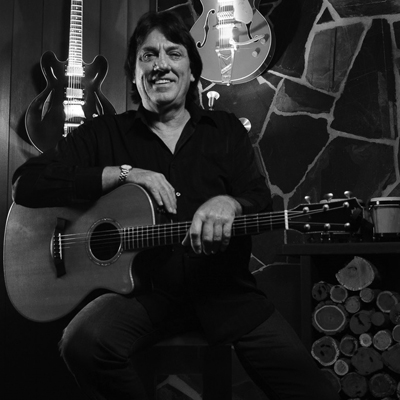

Vale David ‘Daisy’ Day
We are very sad to announce the passing of rock jock icon and Support Act hero, David ‘Daisy’ Day.
Daisy was a legendary radio broadcaster for over forty years. Having started out on radio at the age of sixteen in his home state of New South Wales, he relocated to Adelaide to work at 5KA followed by SSAFM (later SAFM) and then at Coast FM.
Daisy became a household name at the time when radio was a taste former, a trendsetter and a party headquarters. If a rock star gave only one interview, it was to Daisy. If a band released a new single, Daisy played it first. And a party without Daisy present wasn’t worth attending.
Daisy was awarded broadcaster of the year over ten times and was also an award winning consultant and writer, with many other talents and interests. He came to regard South Australia as his true home, raising a family there with his wife Annette and turning down several offers to move onwards and upwards, remaining loyal to his beloved Adelaide.
Daisy knew everyone in rock and pop, witnessed the high and low points of many careers and understood perfectly that working in music could be uncertain and risky. His complete absence of judgment, enormous generosity and astonishing contact book meant Daisy was the obvious choice when Support Act was looking to establish a volunteer group in South Australia. Daisy, along with his hard working committee, went on to become the most successful fundraiser for Support Act. Ever. He achieved this despite enduring many challenging health issues and was still working his magic for this charity until only 10 days before his untimely death.
Daisy will be forever missed by everyone at Support Act, not just because of his towering contribution to our work, but because he was funny, sweet, smart and selfless. And really, one of a kind.
A memorial and tribute to Daisy will be held on Tuesday May 5, 1pm for 1.30pm, at the Arkaba Top Room, 150 Glen Osmond Road, Fullarton.